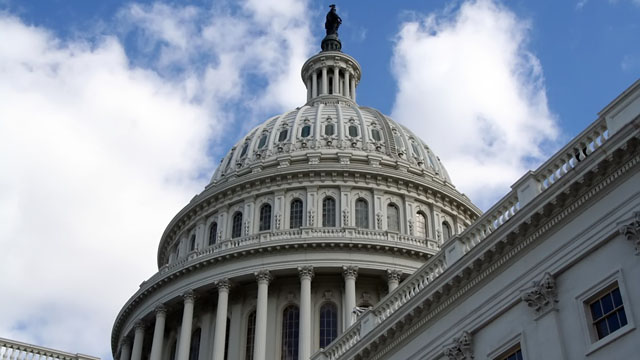February 17, 2012 2:05 PM CST
“In the construction business, small really means small,” said Schubert. DOD contracts are increasing in size and dollar value and small and emerging contractors cannot match that increase. DOD needs to award reasonably sized contracts.
Schubert also noted that all federal construction projects should be subject to the existing anti-bundling rules applicable to other types of procurement. In its testimony, SFAA recommended that federal agencies should be required to award 5% of their total construction budget in contracts of no more than $5 million.
SFAA’s testimony also cited federal procurement rules and programs that create obstacles for small and emerging contractors. “A small business should not lose its status as a small business just because it participates in a joint venture or a mentor-protégé program with a larger contractor,” Schubert told the panel. In evaluating these relationships and determining whether or not to write a bond, it should be clear that a surety can consider the financial strength and indemnity of the larger contractor and not jeopardize the status of the small contractor.
Under current rules, contractors cannot take advantage of set-aside opportunities if they no longer qualify as a small contractor. This also creates a problem for the federal agency letting the construction project as it cannot count the small and emerging contractor’s participation towards its small business participation goals.
“Just because a contractor is too small to complete all of the work on a project does not mean it cannot perform a significant part,” said Schubert, and when a small business participates in this manner, such work should be recognized as compliant with the small business participation goals.
Schubert also urged Congress to maintain the Miller Act bond threshold because payment bonds protect workers, subcontractors, and suppliers on federal projects. In one of the annual appropriations bills in 2008, an inflation adjustment was required for all acquisition-related thresholds every five years.
“The Miller Act needs to be exempted from the inflation adjustment because the bond thresholds were intended for public protection,” said Schubert.
Each increase in the bond threshold means that more subcontractors and suppliers work on bigger projects without the protection of a payment bond. Small and emerging contractors are most likely to be working on DOD projects as subcontractors and their payment protection should not be compromised with inflation adjustments.
Schubert also highlighted SFAA’s successful partnership with the U.S. Department of Transportation on the Bonding Education Program and offered to assist the DOD in implementing a similar program based on SFAA’s Model Contractor Development Program (MCDP).
SFAA testifies before Congress
SFAA urges Congress to remove obstacles for smaller contractors on defense projects
By Surety & Fidelity Association

SFAA’s testimony cited federal procurement rules and programs that create obstacles for small and emerging contractors.
Surety & Fidelity Association of America (SFAA) President Lynn Schubert testified before a panel of the U.S. House Armed Services Committee on the unique challenges that small and midsize contractors face in doing business with the Department of Defense (DOD). Schubert told the panel that many DOD contracts are just too big for small and emerging contractors to perform.“In the construction business, small really means small,” said Schubert. DOD contracts are increasing in size and dollar value and small and emerging contractors cannot match that increase. DOD needs to award reasonably sized contracts.
Schubert also noted that all federal construction projects should be subject to the existing anti-bundling rules applicable to other types of procurement. In its testimony, SFAA recommended that federal agencies should be required to award 5% of their total construction budget in contracts of no more than $5 million.
SFAA’s testimony also cited federal procurement rules and programs that create obstacles for small and emerging contractors. “A small business should not lose its status as a small business just because it participates in a joint venture or a mentor-protégé program with a larger contractor,” Schubert told the panel. In evaluating these relationships and determining whether or not to write a bond, it should be clear that a surety can consider the financial strength and indemnity of the larger contractor and not jeopardize the status of the small contractor.
Under current rules, contractors cannot take advantage of set-aside opportunities if they no longer qualify as a small contractor. This also creates a problem for the federal agency letting the construction project as it cannot count the small and emerging contractor’s participation towards its small business participation goals.
“Just because a contractor is too small to complete all of the work on a project does not mean it cannot perform a significant part,” said Schubert, and when a small business participates in this manner, such work should be recognized as compliant with the small business participation goals.
Schubert also urged Congress to maintain the Miller Act bond threshold because payment bonds protect workers, subcontractors, and suppliers on federal projects. In one of the annual appropriations bills in 2008, an inflation adjustment was required for all acquisition-related thresholds every five years.
“The Miller Act needs to be exempted from the inflation adjustment because the bond thresholds were intended for public protection,” said Schubert.
Each increase in the bond threshold means that more subcontractors and suppliers work on bigger projects without the protection of a payment bond. Small and emerging contractors are most likely to be working on DOD projects as subcontractors and their payment protection should not be compromised with inflation adjustments.
Schubert also highlighted SFAA’s successful partnership with the U.S. Department of Transportation on the Bonding Education Program and offered to assist the DOD in implementing a similar program based on SFAA’s Model Contractor Development Program (MCDP).
About the Author
The Surety & Fidelity Association of America (SFAA) is a trade association of more than 450 insurance companies that write the vast majority of surety and fidelity bonds in the United States. More information about SFAA is available at www.surety.org.


















